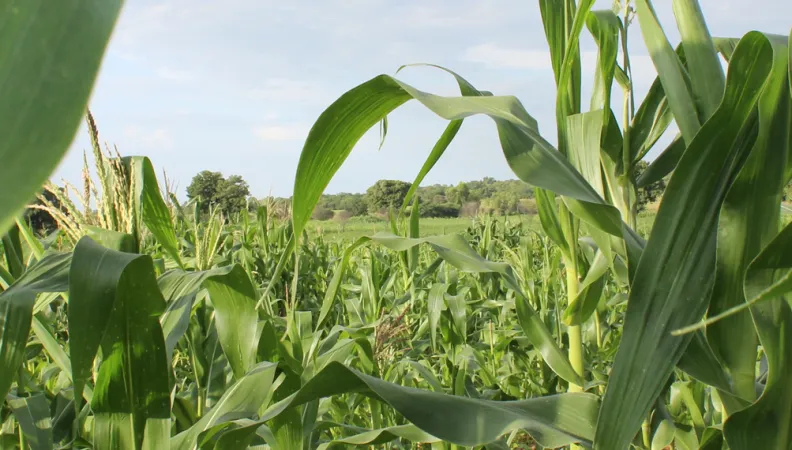Share the page
Promote Sustainable Agriculture in West African Countries
Project


-
Project start date
-
Status
Ongoing
-
Project end date
-
-
AFD financing amount
-
€ 8 000 000
-
Country and region
-
Location
-
États de la CEDEAO
-
Type of financing
-
Beneficiaries
-
CEDEAO, Regional Agence for Agriculture and Food (RAAF)
Agro-ecology is a decisive opportunity for the African continent. It will improve the productivity of its agriculture and make it more resistant to climate change. AFD promotes agro-ecological techniques in West Africa.
Context
Scaling agro-ecological production techniques is a crucial challenge for sustainable development in West Africa. These practices will not only improve the productivity of agriculture, but also its resilience in the face of climate change, thus contributing to contain food and nutritional insecurity in the region.
The third scientific Conference on Climate-Smart Agriculture, which took place in Montpellier in 2015, showed that adequate public policy had to be implemented to support the scaling of agro-ecological systems.
In December 2015, during the Paris Conference on Climate, the Economic Community of West African States (ECOWAS) signed the declaration of the 4 per 1000 Initiative: soils for food security and climate, initiated by France. ECOWAS committed to implement actions to contribute to carbon sequestration in soil. This program constitutes one of the first concrete operations of the 4 per 1000 Initiative.
Description
This transition project in West Africa aims at backing agro-ecological intensification and thus promote the emergence, adoption and spreading of environmentally intensive agricultural practices in family farming.
This project is supported by AFD through a EUR 8 million grant. It currently covers five ECOWAS countries.
It has a double objective:
- to develop field projects to support groups of farmers and herdsmen who commit to change their practices;
- to encourage experience sharing and contribute to the elaboration of public policy.
Coordination and project management will be done through a regional coordination unit, supported by a national correspondent in each country.
Additionnal funding from the European Union is currently being sought to extend the project to all ECOWAS member States.
Impacts
- Better agricultural productivity in West African countries.
- Better agriculture resilience to natural hazards.
- Mitigation of climate change's effects.
- Reduction of food insecurity.


